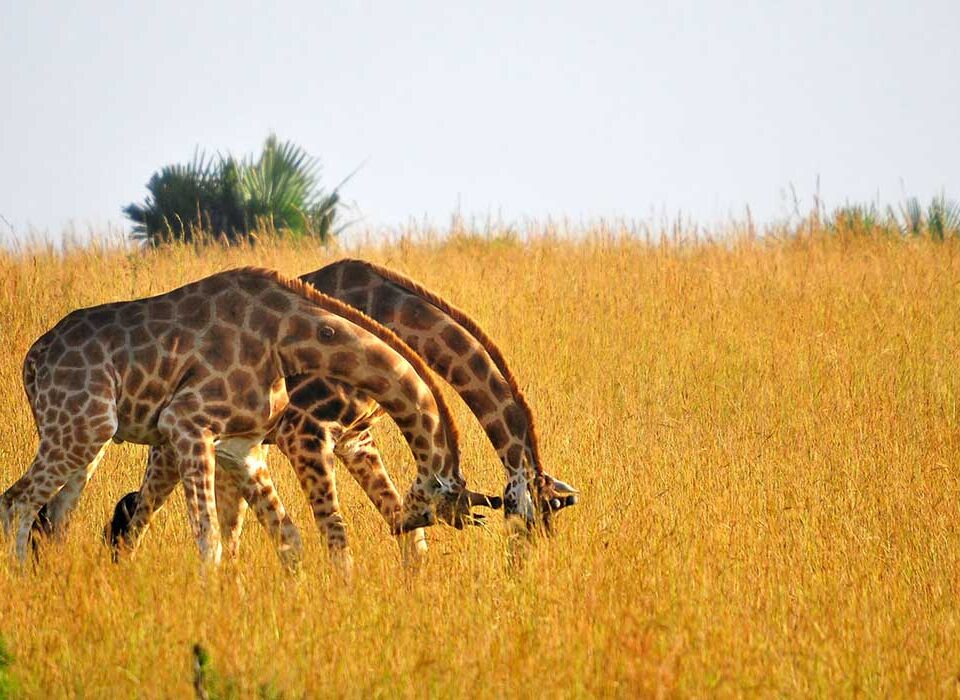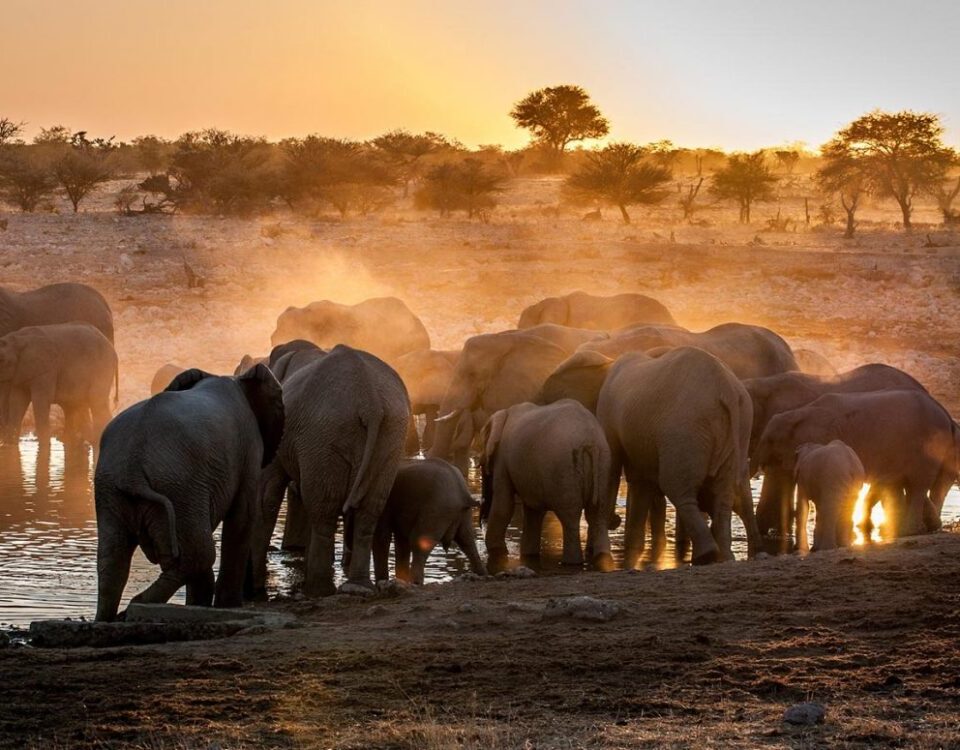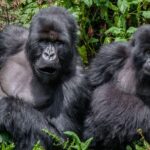
What Is the Cheapest Way to See Gorillas?
April 29, 2025
How Long Do You Need for Gorilla Trekking?
May 1, 2025Is Gorilla Trekking in Rwanda Ethical?
Gorilla trekking in Rwanda is widely recognized as one of the most thrilling wildlife experiences on the African continent. Tourists from all over the world travel to the misty slopes of Volcanoes National Park, home to some of the last remaining mountain gorillas on Earth. Watching these gentle giants in their natural habitat is a rare privilege, but it has also raised important ethical questions. Is it truly ethical to visit endangered gorillas? Does the presence of tourists negatively affect their behavior or health? At Wild Village Safaris, we believe in responsible travel, and we’re here to guide you through the facts surrounding gorilla trekking in Rwanda to help you make informed and ethical travel choices.
Understanding the ethics of gorilla trekking requires looking at the conservation, community, and environmental impacts of this activity. Rwanda has become a model for sustainable tourism by establishing one of the most regulated and conservation-focused trekking experiences globally. Visitor numbers are tightly controlled, and strict protocols are in place to ensure the safety of both tourists and gorillas. However, while Rwanda’s conservation success is impressive, ethical concerns still exist and deserve careful discussion. This write-up explores whether gorilla trekking is ethical, how it supports conservation, what it means for local communities, and how cultural experiences can enhance the trek responsibly.
Gorilla Conservation Success: A Global Example of Ethical Tourism
One of the strongest arguments in favor of gorilla trekking in Rwanda is the positive impact on conservation. When gorilla trekking was first introduced in the late 20th century, mountain gorilla populations were dwindling due to poaching, habitat loss, and disease. Thanks to well-managed ecotourism, the population has rebounded significantly. Rwanda’s commitment to protecting gorillas is evident in the stringent rules enforced by Rwanda Development Board (RDB): only eight visitors are allowed per gorilla family each day, visits last just one hour, and visitors must maintain a 7-meter distance.
In addition to controlling group sizes, trekkers must follow hygiene protocols, including mask-wearing and disinfection, to prevent disease transmission—especially crucial given that gorillas share 98% of their DNA with humans. This level of precaution reflects Rwanda’s ethical responsibility toward gorilla welfare and ensures that trekking has minimal negative impact. The $1,500 trekking permit may seem costly, but a large portion of this fee directly funds anti-poaching patrols, veterinary interventions, ranger training, and long-term ecological monitoring.
At Wild Village Safaris, we ensure that our guests are thoroughly briefed on these ethical guidelines. We believe that education is the foundation of responsible tourism, and we work closely with conservationists and park authorities to offer treks that prioritize animal welfare and environmental sustainability.
Supporting Local Communities Through Ethical Eco-Tourism
Ethical travel is not just about protecting wildlife; it’s also about ensuring that local people benefit from tourism. One of the most impressive features of Rwanda’s gorilla trekking program is the Revenue Sharing Scheme, which allocates 10% of all park revenue directly to the communities surrounding Volcanoes National Park. This initiative has helped build schools, health centers, water infrastructure, and small businesses, dramatically improving the quality of life for local families.
Moreover, thousands of Rwandans are employed directly or indirectly through gorilla tourism. From porters and rangers to lodge staff and handicraft makers, local involvement is central to the trekking experience. This participation ensures that the surrounding communities have a vested interest in protecting the gorillas, thereby reducing instances of illegal hunting or encroachment into park areas.
At Wild Village Safaris, we prioritize the use of community-run lodges and locally trained guides. Not only does this support the local economy, but it also allows our clients to gain authentic insights into Rwandan culture and community life. When gorilla tourism is integrated with local development, it becomes a powerful tool for ethical and sustainable travel.
Concerns and Challenges: Is Gorilla Trekking Too Intrusive?
Despite the many benefits, gorilla trekking in Rwanda is not without its ethical dilemmas. One concern is the process of gorilla habituation, which involves gradually exposing wild gorillas to human presence so they feel safe during trekking visits. While habituation is necessary for tourism, it can make gorillas more vulnerable to poaching or reduce their natural avoidance of humans.
Another key issue is disease transmission. Even with strict precautions, the potential for human-to-gorilla transmission remains a serious concern, especially in the wake of global pandemics. Additionally, daily visits—even in small groups—could contribute to stress or behavioral changes in gorilla families over time. This is why it’s crucial for visitors to follow all park rules and understand the implications of their presence.
Lastly, there’s the matter of accessibility. The high cost of trekking permits makes the experience exclusive and inaccessible for many travelers, raising questions about inclusivity in conservation. At Wild Village Safaris, we strive to offer budget-conscious options by creating combination packages, promoting cultural tours, and providing guidance on affordable accommodations without compromising the ethical standards of the trek.
Enhancing Your Trek with Cultural Experiences in Volcanoes National Park
To make your gorilla trekking adventure more meaningful, Wild Village Safaris offers cultural add-ons that connect visitors to the rich traditions of the Rwandan people. A visit to the Iby’Iwacu Cultural Village, located near the park, is the perfect complement to your trek. This vibrant community-based tourism initiative showcases traditional Rwandan music, dance, cuisine, and storytelling.
Visitors can meet former poachers who have been rehabilitated and now work as conservation advocates. Engaging with these stories helps trekkers understand the human dimension of conservation. You’ll also have the chance to try traditional drumming, weave local crafts, and learn about ancient customs passed down through generations.
Participating in cultural experiences not only enhances your understanding of Rwanda’s history and values, but it also contributes directly to community income and empowerment. By choosing to add a cultural tour, you become a part of a larger ethical travel movement—one that values respect, connection, and sustainable development.
Final Thoughts: A Responsible and Ethical Wildlife Experience
So, is gorilla trekking in Rwanda ethical? Yes—when done responsibly. Rwanda’s carefully regulated approach, its emphasis on gorilla welfare, and its commitment to local community benefits make it one of the most ethically sound wildlife tourism models in the world. The challenges that exist—such as disease transmission and habituation—are being actively addressed through policy, research, and education.
At Wild Village Safaris, we are proud to be part of Rwanda’s ethical travel landscape. We believe that tourism should be a force for good—protecting endangered species, uplifting communities, and leaving a positive footprint. When you choose to trek with us, you are choosing to travel consciously, support conservation, and experience the best of Rwanda, both in the wild and among its people.

